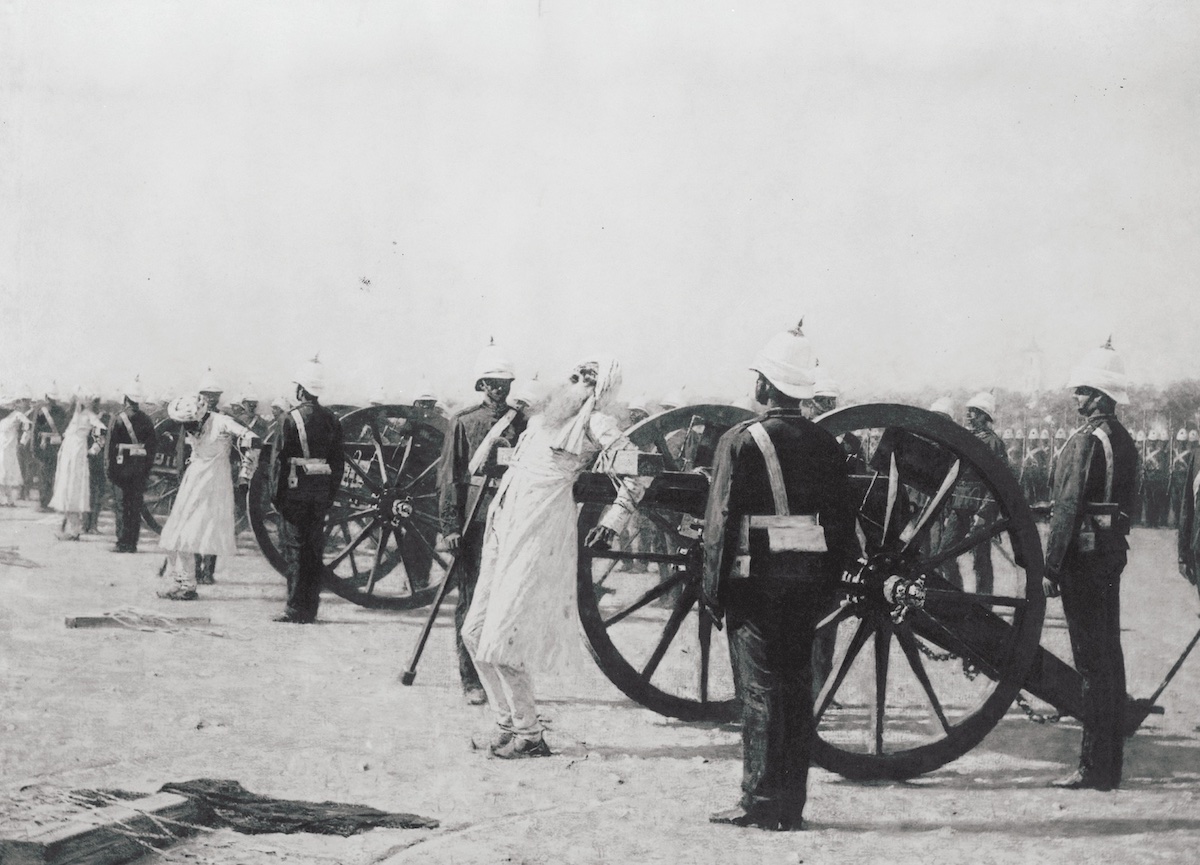India’s Kuka Revolt: 49 Namdhari Sikhs Executed on January 17, 1872
History Indian HistoryPosted by NewAdmin on 2025-02-07 09:05:01 |
Share: Facebook | Twitter | Whatsapp | Linkedin Visits: 33

The Kuka Revolt: A Controversial Chapter in British India
The Kuka Revolt of 1872 remains a controversial episode in the history of British colonial rule in India. The Namdhari Sikhs, often referred to as ‘Kukas’ by the British, had expressed growing discontent, leading to unrest in the Muslim-majority region of Punjab. On January 14, 1872, a group of around 200 Kukas launched an unsuccessful raid on the Malodh fort and later attempted to capture Malerkotla, both of which failed. Some were killed in the skirmishes, and others were captured or fled.
The Execution of 49 Kukas
Despite the insurrection being quelled, the British authorities were determined to make an example of the Namdhari Sikhs. John Lambert Cowan, the British deputy commissioner in Punjab, ordered the execution of 49 captured Kukas on January 17, 1872. Strapped to the muzzles of cannons, they were blown to pieces in a brutal display of power. Cowan claimed that this extreme measure was necessary to prevent further unrest, though it was clear that the insurrection had already been suppressed, and many of the executed were already wounded.
Cowan’s Dismissal and the Aftermath
The executions sparked controversy, especially as Cowan ignored orders to hold the men in custody and proceeded with the punishment despite receiving fresh directives that advised against hasty action. His actions were widely criticized, and within days, Cowan was dismissed from his position. The event highlighted the brutality of British rule and raised doubts about whether the Kukas had ever truly posed a significant threat to colonial authority.
Legacy and Debate
While the Kuka Revolt is often remembered as a sign of resistance to British rule, the execution of the 49 Namdhari Sikhs adds complexity to the narrative. Some historians have questioned whether the Kukas were truly seeking insurrection or if their actions were more about asserting their religious and cultural identity. The incident remains a poignant and tragic reminder of the harsh measures employed by the British to suppress dissent in colonial India.
Search
Categories
Recent News
- SEBI's Reformative Push for Market Integrity
- South Africa's Cricket Renaissance: A Squad with Depth
- Warriors' Dynasty in Doubt: Draymond Green's Imminent Departure
- Cricket's Power Struggle: Money vs. Autonomy
- Sacred Sweets Scandal: Tirupati Prasadam Under Scrutiny
- Klaasen's Omission: A Surprising T20 World Cup Snub
- Hyderabad Cracks Down on Drunk Driving for New Year's Safety
- IIT Bombay Tragedy: Student's Fatal Leap from Hostel
Popular News
- Navigating IPO Market Dynamics Amid Volatility and Regulatory Changes
- Massive Worldwide Microsoft Outage Disrupts Multiple Sectors
- Panjapur Bus Stand to Reshape TNSTC Routes
- తెలుగుదేశం పార్టీ - పేదరికాన్ని నిర్మూలించడంలో వాగ్దానం
- Universities Embrace Remote Learning Technologies Amidst Ongoing Pandemic